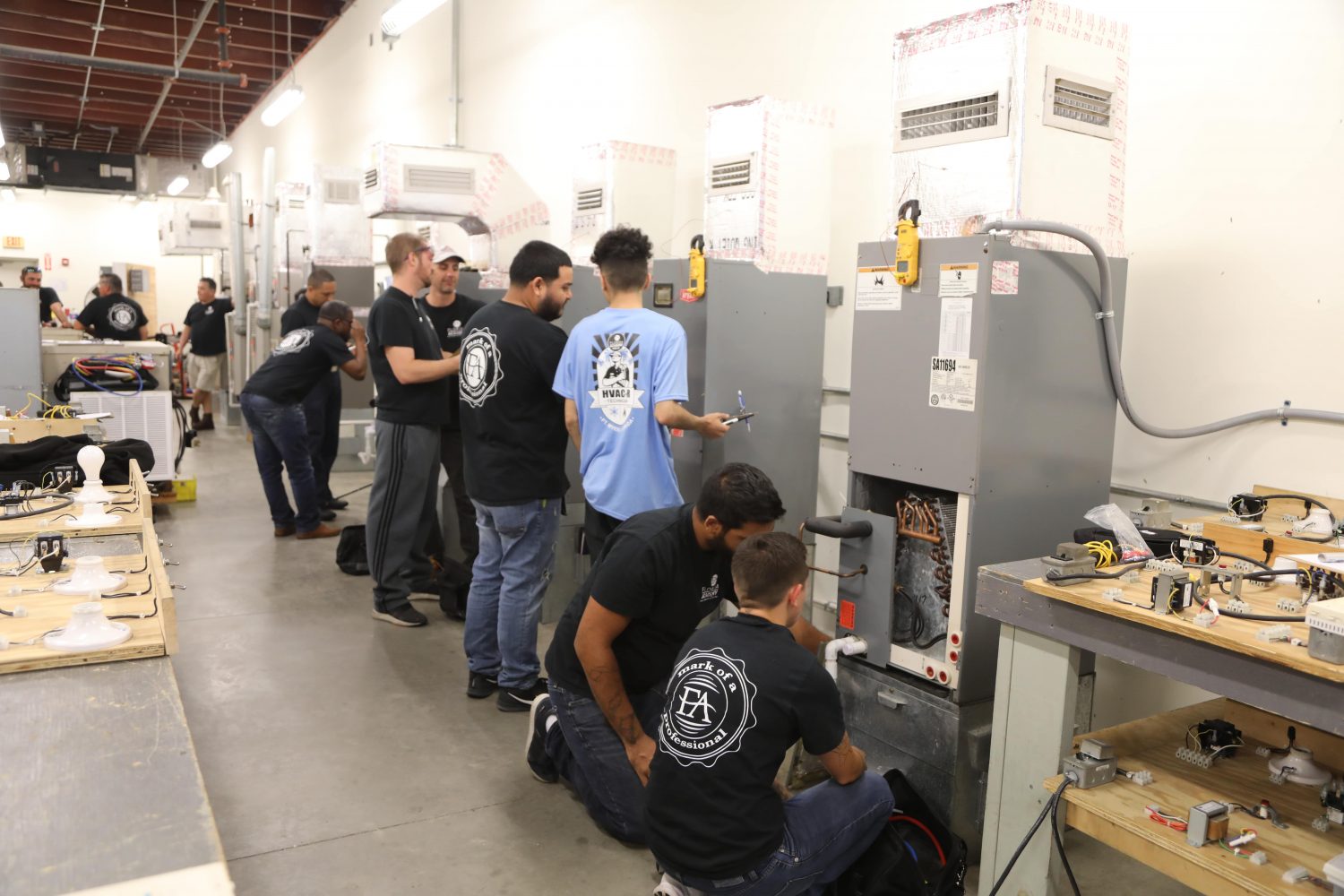HVAC Career Overview
by
Behind every functioning home is a knowledgeable and efficient HVAC technician. HVAC technicians are the silent stars of keeping homes comfortable and liveable—so it makes sense that these hardworking individuals should get a career overview spotlight like the one you are about to read.
Being an HVAC technician is more than just fixing and installing AC units —it’s a dedication to providing quality thermal and home services to homeowners. Learn more about HVAC technicians and what they do below.
Skills HVAC Technicians Have
HVAC technicians are expected to have a certain set of skills when they enter the workforce. These skills include:
- Reading blueprints and following specifications for HVAC system installation
- Properly connecting HVAC systems to supply lines and electrical wiring
- Understanding entire HVAC systems, such as how heating and cooling systems function
- Following government regulations properly, especially in disposing of fluids and gases
- Evaluating safety hazards and using accident prevention techniques
- Having a knowledge of all types of tools, from ordinary hammers to acetylene torches
- Knowing basic computer skills to employ software programs used to control HVAC systems
- Troubleshooting skills are also essential as techs must be able to identify non-working parts
- Communicating effectively is an integral part of HVAC technicians’ jobs as they must interact with customers daily
Overall, HVAC technicians need to have extensive knowledge of heating and cooling systems and know how to identify problems and solve them.
Daily Duties & Work Schedule
The day-to-day of an HVAC technician depends on what problems homeowners are encountering that day, but some daily duties include:
- Installing the wiring of an HVAC system
- Testing the equipment to confirm proper installation
- Cleaning and changing air filters
- Unclogging condensate drains
- Taking HVAC systems apart
- Checking and refilling AC refrigerant levels
- Cleaning condenser and evaporator coils
- Repairing old equipment
- Using mechanical, pneumatic, and electrical testing equipment
As for their work schedule, HVAC technicians usually work full-time. Some technicians work irregular hours or longer shifts as many HVAC companies offer 24/7 services for heating and cooling emergencies.
Is an HVAC Career a Good Choice?
In short, yes! A career in HVAC is a great choice because of job security, pay, flexibility, and time.
Job Security
Currently, the demand for HVAC techs is larger than the supply. This means that there are ample jobs available and even if you were to lose a current HVAC job, another one can be relatively easy to get. Additionally, the U.S. Bureau of Labor Statistics reports that through 2029, the employment of HVAC technicians is set to grow four percent. So into the foreseeable future, landing an HVAC job will always be an option since employment and need will continue to grow.
Pay
An HVAC technician job is one of the highest-paying jobs that don’t require a college degree, making it a lucrative choice and a great job to help support a family and plan for your future.
Flexibility
Another perk that makes an HVAC career a great choice is the flexibility it comes with. HVAC technicians often have the option of working day shifts or night shifts, especially if the company they work for offers emergency HVAC services to customers. And because HVAC skills are needed anywhere, technicians have the flexibility of being able to find work across the country and even anywhere in the world.
Time
For a job with an average salary of 50K, the time it takes to train for it is very appealing. Most technicians train for a minimum of six months and up to three years if they want to be specialized. This means that you can be getting paid more than a college graduate in less time than it takes to get a college degree.
Florida Academy HVAC/R Tech Training
Florida Academy 600 hour program quickly gives you the HVAC/R training necessary to begin working in an entry-level position. You will receive hands-on training available and receive the knowledge you need to understand, develop,service, repair, retrofit and maintain a variety of A/C & refrigeration equipment (HVAC/R) and expand your employment opportunities in the local job market.
Within the next decade, this industry is expected to grow by 9 percent, according to the Bureau of Labor Statistics. The majority of homes and buildings being built today will have centralized cooling and heating systems, which will keep the need for A/C & Refrigeration Technicians in demand.
Your salary will depend on various factors, timed training hours, certifications, location, and the level of experience that you have.

